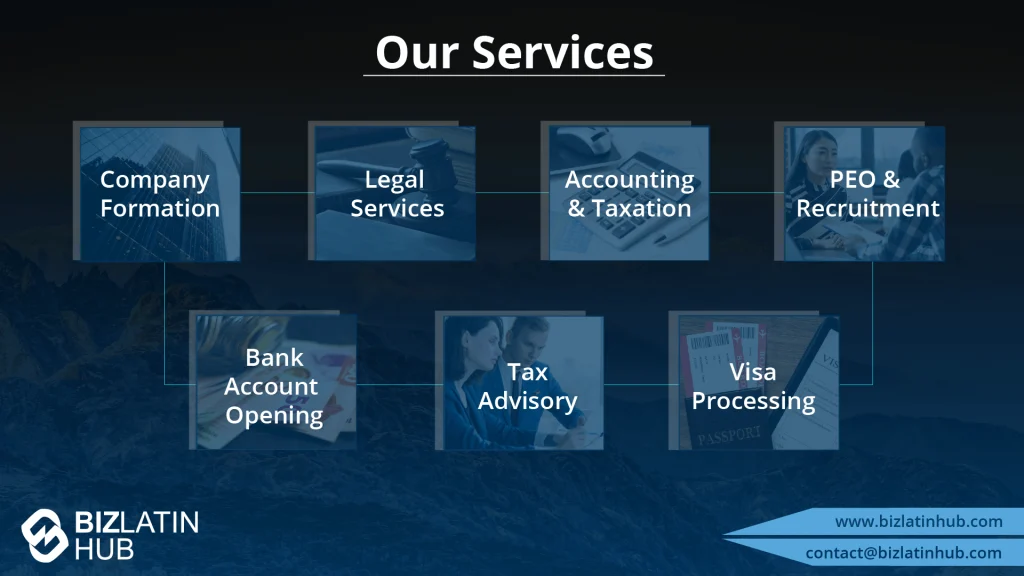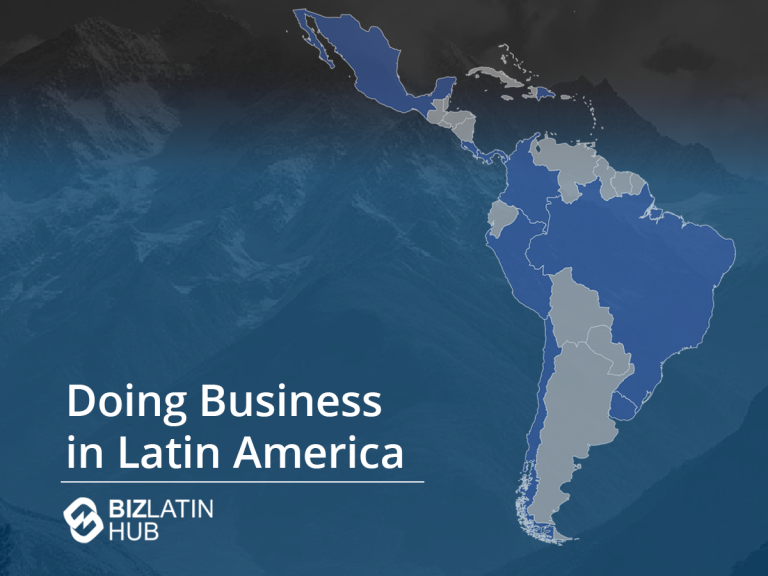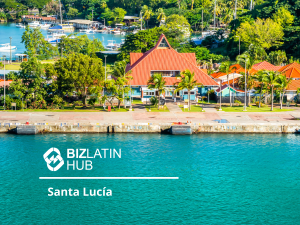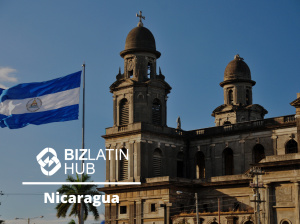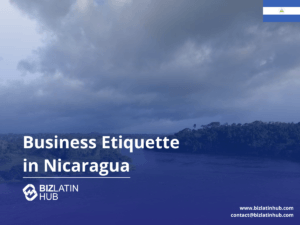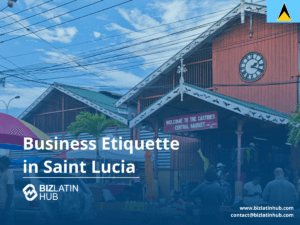The expansive ambitions of the Pacific Alliance — a decade-old economic bloc established by Chile, Colombia, Mexico, and Peru — could soon be bolstered further, after the government of one of Latin America’s most prosperous economies, Costa Rica, made clear its desire to reactivate talks on joining the organization.
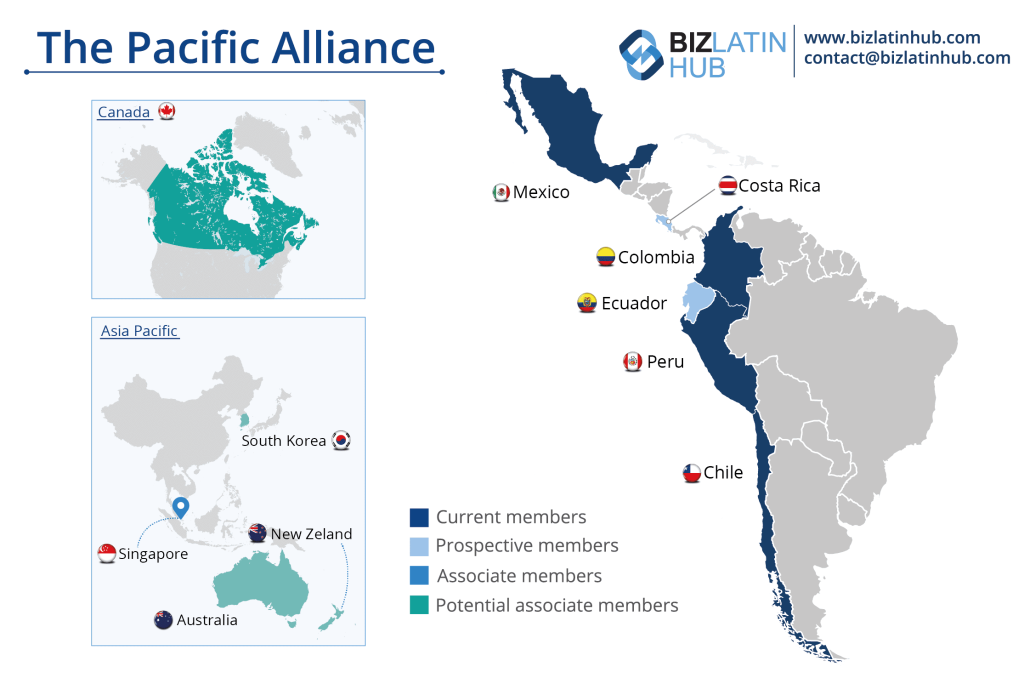
Having originally been established by its founding members in 2011, the Pacific Alliance has shown increasing intent to grow in recent years, with Ecuador making a formal application to join the organization in January, after a bid to become an associate member was accepted as far back as 2019. However, that remains stalled.
Panama is undergoing the long process of accession talks alongside Costa Rica, although further behind in the system. In recent years, a number of other countries from Latin America have been mentioned as potential future members of the Pacific Alliance, including Honduras and Costa Rica, with the government of the latter now more active on membership discussion which had previously stalled.
Meanwhile, following years of anticipation regarding its expansion into the Asia Pacific region, the Pacific Alliance concluded negotiations with Singapore to become a new associate member in mid-2021. That was followed by the two parties signing a free trade agreement (FTA) in January, as a precursor to Singapore’s associate member status being formally established.
Notably, Singapore is the first of four long-mooted potential associate members from the Asia Pacific region to sign an agreement, with Australia and New Zealand having opened FTA talks with the Pacific Alliance. Canada has also opened FTA negotiations with the organization and is similarly expected to attain associate member status.
If you are thinking about company formation in any of the Pacific Alliance full or associate members, Biz Latin Hub is here to help. We have offices and/or partners in all those countries and across Latin America and the Caribbean. As the largest provider of back office services in the region, no one knows how to do business here better than we do.
Costa Rica looks to become sixth Pacific Alliance member
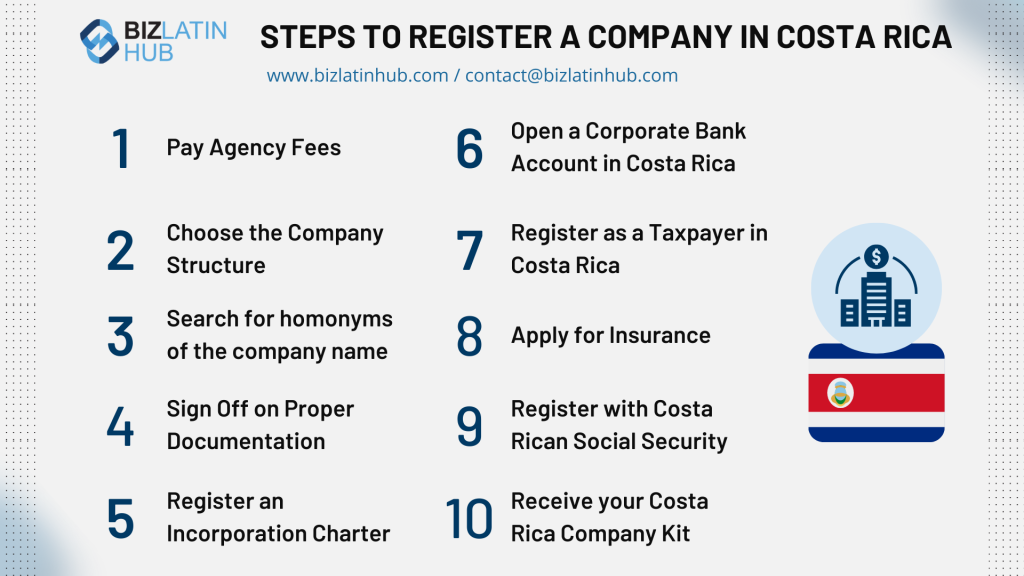
While talks between the Pacific Alliance and prospective associate members Australia, Canada, and New Zealand are likely to be ongoing for some time, it also appears probable that Costa Rica will formally reach full membership sooner rather than later. The talks have been ongoing since 2014, so it’s very much a long-term process.
Discussions to join the Pacific Alliance begun during the 2010 to 2014 administration of Laura Chinchilla but stalled under her successor Luis Guillermo Solis.
The next president, Rodrigo Chaves, reactivated negotiations to join the Pacific Alliance in 2022. Since assuming office in May, he has continued that intention, outlining how full membership would generate employment and attract more investment to the Central American country.
Agriculture is expected to benefit to a significant degree, with export opportunities for the likes of dairy and pork expected to increase considerably.
Costa Rica, a prosperous and developed market
Costa Rica is one of the most politically and economically stable countries in Latin America, with a long democratic tradition and strong institutions and constitutional checks. Since the turn of the century, GDP has grown exponentially, only registering its second annual decline in almost four decades when the COVID-19 pandemic hit in 2020.
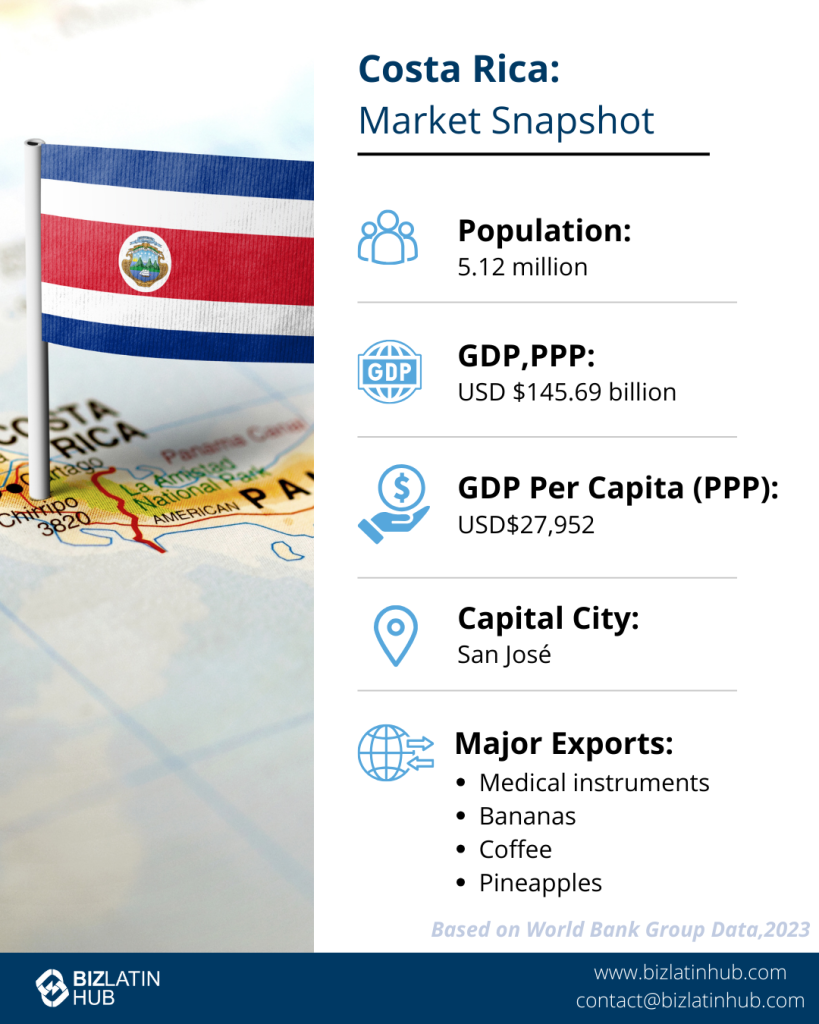
Meanwhile, the country’s low levels of violent crime and high levels of English proficiency have also contributed to making Costa Rica a particularly attractive destination for foreign investors and visitors — with the country named the second best place in the world to retire to in the 2022 Annual Global Retirement Index.
The popularity of the country as an investment destination is made evident by the fact that prior to the COVID-19 pandemic, FDI accounted for 7.8% of GDP. While that figure fell in the face of the economic disruptions caused by the global crisis, the Costa Rican government has implemented a series of measures to encourage foreign visitors and capital back to the country.
Those have included a move to lower investment barriers by cutting the minimum investment required for residency, the introduction of a “digital nomads visa” to attract remote workers, and efforts to develop closer economic ties with neighbouring countries.
Costa Rica’s strong growth, robust democracy, and popularity among investors have contributed to it emerging as one of the most prosperous nations in Latin America, at the top end of “upper-middle income” status, based on classifications established by the World Bank.
That also places it among the four most prosperous nations in Latin America, based on GNI per capita, with Chile the only Pacific Alliance member with a higher figure. Notably, with the addition of both Ecuador and Costa Rica, the bloc would be composed of six of the top 12 most prosperous countries in Latin America.
Biz Latin Hub can assist you doing business in the countries of the Pacific Alliance
At Biz Latin Hub, we provide integrated market entry and back office services throughout Latin America and the Caribbean, with offices in 18 countries, including the Pacific Alliance members and trusted partners in many more. That unrivaled reach means we are ideally positioned to support multi-jurisdiction market entries and cross-border operations.
Our portfolio of services includes company formation, accounting & taxation, legal services, bank account opening, and hiring & PEO.
Contact us today to find out more about how we can support you doing business.
If you found this article on the growth of the Pacific Alliance of interest, check out the rest of our coverage from the region. Or read about our team and expert authors.
